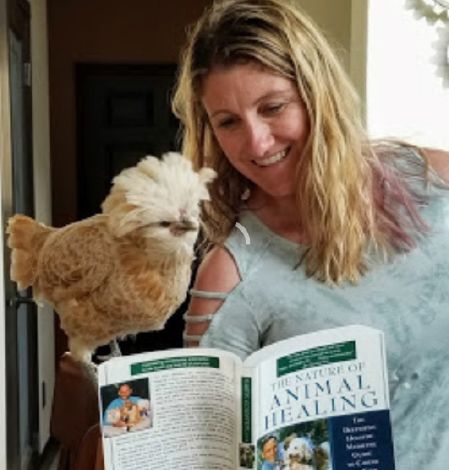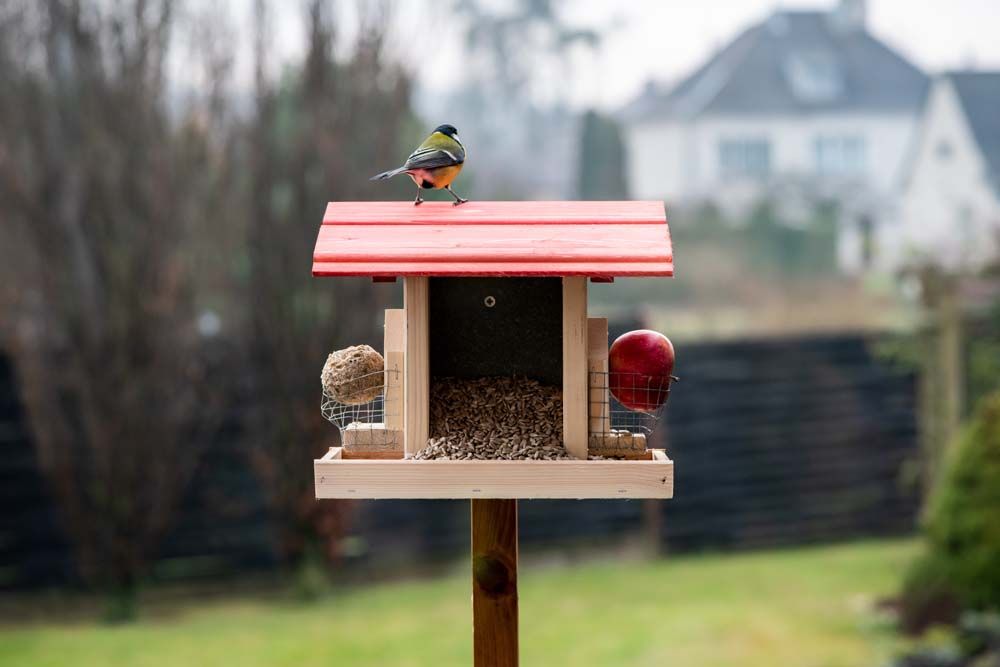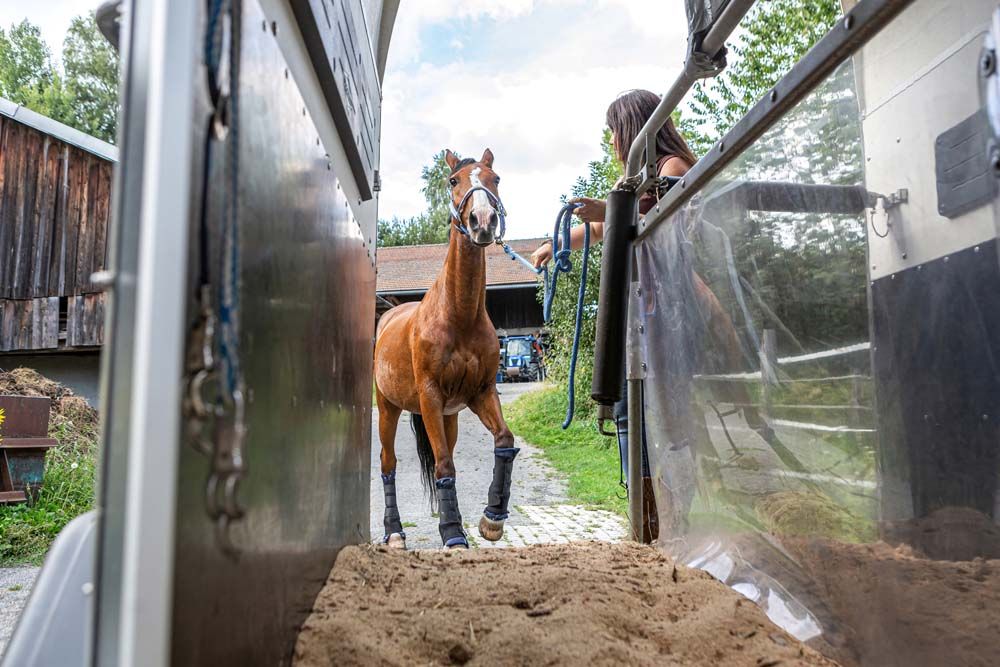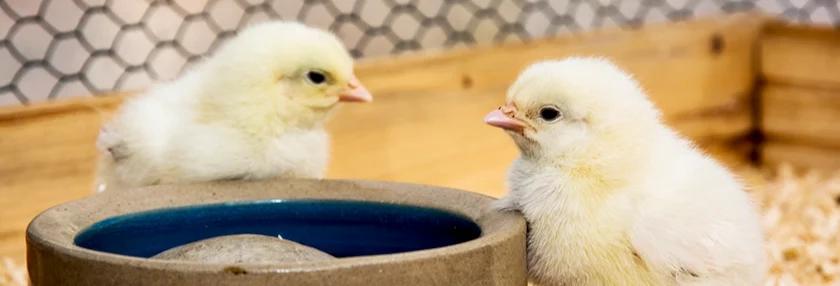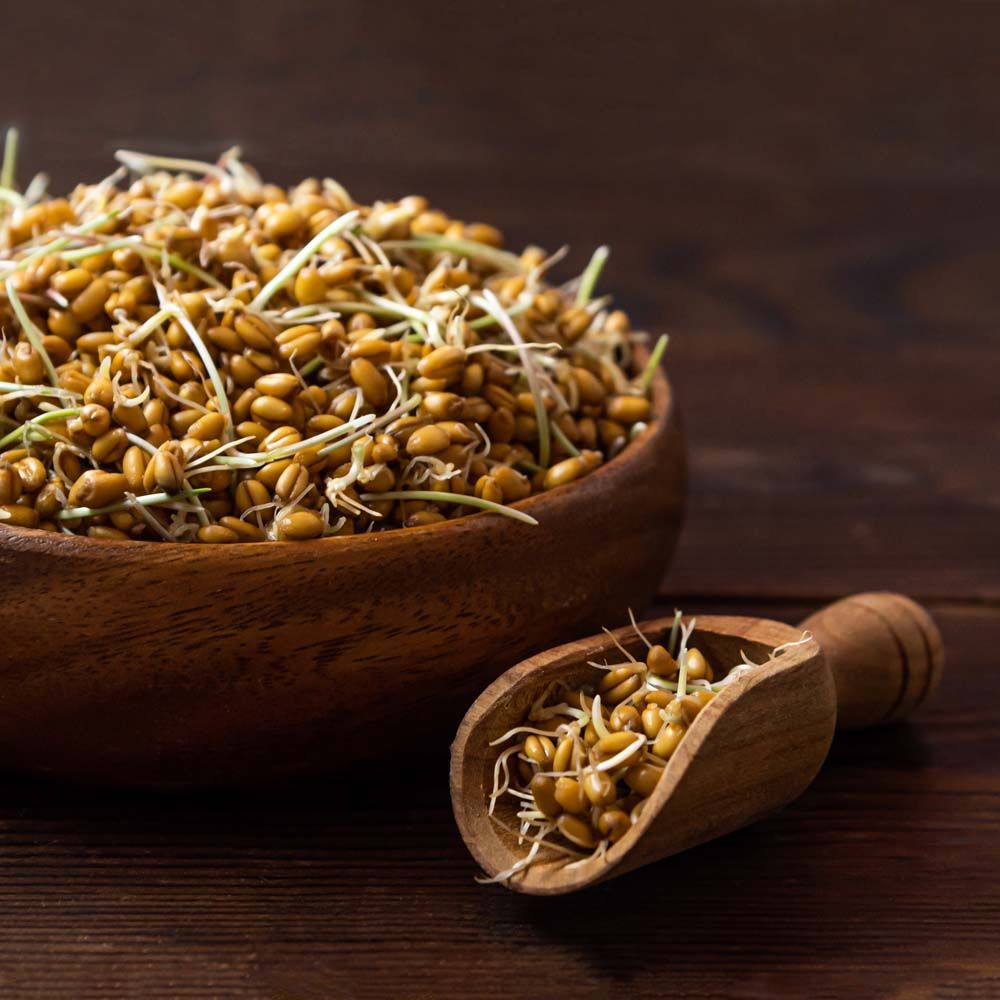Chicken Chatter


What do they talk about all day?
Ask any backyard coop-keeper and they will tell you that chickens are a vocal bunch! Even if their flock doesn’t include loud squawkers, the murmurs, mumbles, chitter, and chatter are enough to make farmers wonder what sort of mutiny their birds are plotting against them.
Certainly, these vocalizations have to mean something, right? They certainly do! Chickens have a unique way of communicating; so let’s break down some of these sounds and see what these chatterboxes are trying to say.
Sounds of contentment
If your chicken is quietly mumbling to itself or making a sound almost like a very soft purr…pat yourself on the back because this means your feathered friend is very content and feels safe.
This can also be the sound hens make while they are pecking around so they can determine who is where in the yard. The murmurs are quiet enough to not alarm fellow foragers, but allow the flock to know where their friends are at all times.
Danger! Danger!
Chickens scream for much the same reason as people do…to raise an alarm. If a chicken senses danger or is startled by something they determine is dangerous, they will utter a shrill, very loud shriek to make it very known that peril is fast-approaching and everyone needs to take cover now.
Another form of this warning sound is repetitive clucking that gets louder and faster as the danger approaches. If the threat is spotted but not necessarily in the danger-zone, chickens will sound this alarm to basically give fellow flockmates a little bit of time before the cat, coyote, hawk or not-favorite human gets too close for comfort.
Everyone! I laid an egg!!
This is an all too familiar sound for seasoned chicken parents. This sound is generally screamed from the entrance of the nestbox to let the whole neighborhood know that an egg has been laid. This is a very distinct “bok, bok, bok, ba-GAWK” repeated at least 4-22 times or until a human comes out to collect the award or yell at the hen to pipe down.
I’m irritated
Whether a hen’s favorite nestbox is occupied, or their human had to audacity to asks for pets without the usual treat bribe…the “bok, bok, bok, bokBOK, bok, bok, bok” is a telltale sign that something (or someone) has seriously irritated the bird. This sound is usually accompanied by an impressively disapproving side-eye.
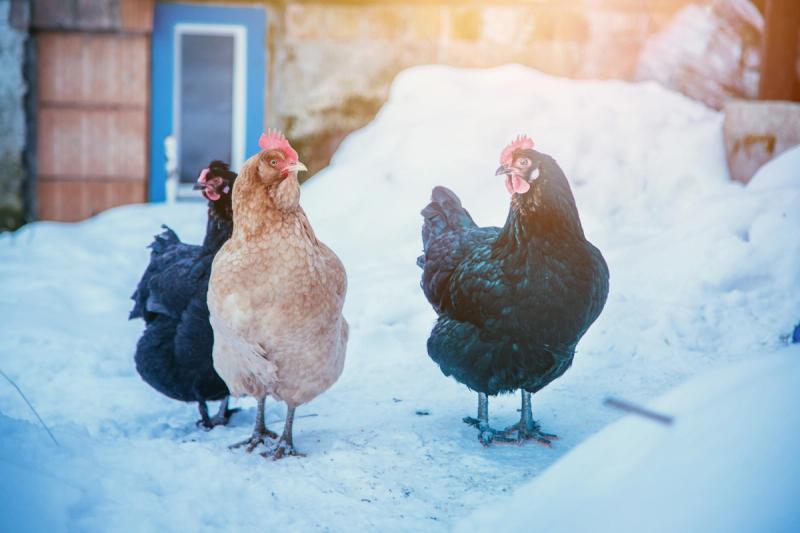
Leave. Me. Alone.
Chickens are generally pretty darn good at telling people that it would be in their best interest to leave them the heck alone. Growls, deep rumbles and hisses are indications that the chicken is in a bad mood. These are especially common sounds coming from broody hens who have taken a keen interest in never leaving the nestbox. In case the scary sounds don’t fend off nosy neighbors or people, hens will also puff up or even nip to make their intentions well known.
Children, listen to your mother
Even while in the egg, chicks can recognize their mother’s voice. Hens will coo and murmur to unhatched chicks to help form a bond and teach them the sound of her voice. If you listen close, you can even hear the little ones peeping back from within the confines of their shell.
Once the chicks are out in the big world, mother hen uses a variety of sounds to teach her babies what is safe and what should be avoided.
A soft,“tuk, tuk, tuk” sound tells chicks that there is food that is safe and tasty to eat. She usually will peck at the morsel or nudge it in their direction while making this sound to encourage her young to try a bite. Roosters make a very similar sound to let his ladies know he has found food for them.
A rumbling “rrrrrr!” is a warning to the chicks to run for cover, danger is near! Chicks will bolt for the nearest hiding spot and stay silent until mother chirps a quick “tuk tuk” to let her young know the coast is clear.
I’m just a baby!
Chicks don’t have a vocabulary as extensive as adults, but they like to make themselves known all the same. The tell-tale“chirp, chirp” of chicks seems to cover a wide range of statements from “Mom, mommmm! Where are you?!” to “I’m hungry” to “My sister is touching me!” The only real distinction is the volume and the velocity in the chirps. Apparently, mother hens are well-versed in chick language; but, if you listen close, you may be able to decipher what baby is trying to say:
- A single, quiet, irregular chirp means “I’m feeling safe and am happy”.
- A soft warbling chirp says “Life is good.” This is usually accompanied by a yawn followed closely by a nap.
- A loud, sharp chirp means “I’m so miserable! I’m hungry, I’m cold, I’m hot, sister is touching me!”
- Loud and insistent peeps mean “Help me!” This brings mom running to assist her baby.
- Loud, sharp and repeated chirps mean “Ahh danger! Don’t hurt me!”
- Sharp, shrill chirps mean the chick was startled.
I’m the man of the house
The obvious “Cock-a-doodle-doo” call given by roosters doesn’t necessarily always mean “Time to wake up!”. This vocalization can also warn of predators in the vicinity, food has been located, a warning to other roosters or just to show off to the ladies.
Listen hard
So, there you have it. Chickens aren’t just noise-makers…they actually have something important to tell you, and now you know what it is!
Listen to these sounds to learn more
Tags:Chicken Chatter

Acreage Life is part of the Catalyst Communications Network publication family.




